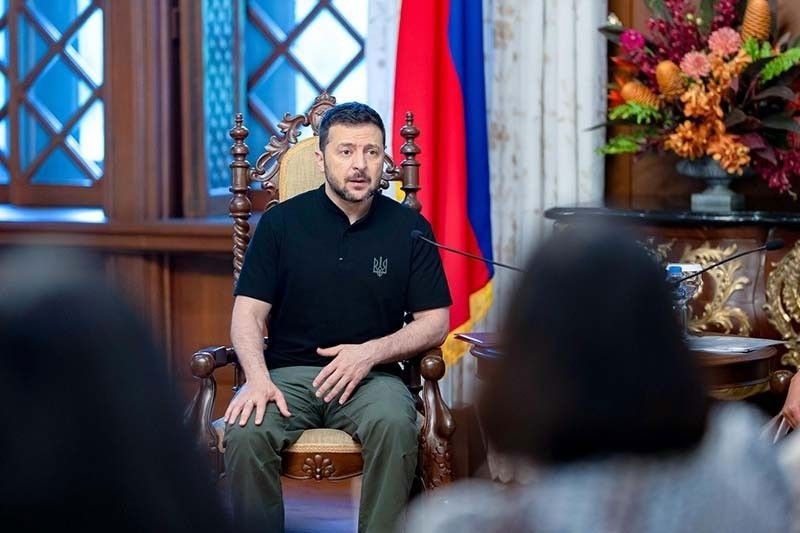Zelensky seeks internationally agreed peace plan

BUERGENSTOCK – As world leaders lined up to offer their support at a summit for peace in Ukraine on June 15, President Volodymyr Zelensky voiced hope of garnering international agreement around a proposal to end the war that he could present to Moscow.
More than two years after Russia invaded, leaders and senior officials from more than 90 states gathered in a Swiss mountainside resort for a two-day summit dedicated to Kyiv’s plan to end the largest European conflict since World War II.
Most voiced strong support for Ukraine, demanding a “just peace.”
Others, however, criticized Moscow’s exclusion and warned Kyiv it would need to compromise if it wanted to end the war.
In his opening remarks, Zelensky told the assembly: “We must decide together what a just peace means for the world and how it can be achieved in a lasting way.
“Then it will be communicated to the representatives of Russia, so that at the second peace summit we can fix the real end of the war.”
Kyiv has previously said Russia would be invited to a second summit – a position many countries backed on June 15.
‘Capitulation’
The summit comes as Ukraine is struggling on the battlefield, where it is outmanned and outgunned.
On June 14, Russian President Vladimir Putin demanded Ukraine’s effectively surrender if it wanted to even begin peace talks.
The Russian leader’s call for Ukraine to drop its Nato ambitions, hand over the entirety of four provinces claimed by Moscow, and carry out a demilitarization - already rejected by Zelensky as an “ultimatum” - were widely dismissed.
“He is not calling for negotiations, he is calling for surrender,” US Vice-President Kamala Harris said.
“All us are committed to build a sustainable peace... Such a peace cannot be a Ukrainian capitulation,” French President Macron said.
“There is one aggressor and a victim,” he added.
German Chancellor Olaf Scholz warned that any ceasefire without “serious negotiations with a roadmap towards a lasting peace... would only legitimize Russia’s illegal land grab.”
EU Commission chief Ursula von der Leyen took a similar line, arguing: “Freezing the conflict today, with foreign troops occupying Ukrainian land, is not an answer.
“In fact, it is a recipe for future wars of aggression.”
‘Difficult compromise’
It was a more mixed message, however, from outside Ukraine’s traditional circle of backers.
Saudi Arabia, an energy ally of Russia, told Kyiv it would have to make a “difficult compromise” if it wanted to end the conflict.
“And here it is essential to emphasize that any credible process will need Russia’s participation,” Foreign Minister Faisal bin Farhan Al-Saud said.
China, which struck a “no-limits” strategic partnership with Moscow days before the February 2022 invasion, did not send a delegation to the conference in protest at Russia’s exclusion.
And Kenya’s President William Ruto criticized the latest Western measures against Russia, this week’s G-7 deal to offer a $50-billion loan to Ukraine secured against profits of frozen Russian assets.
“Just as Russia’s invasion of Ukraine was unlawful and unacceptable, the unilateral appropriation of Russian assets is equally unlawful,” Ruto said.
- Latest
- Trending































